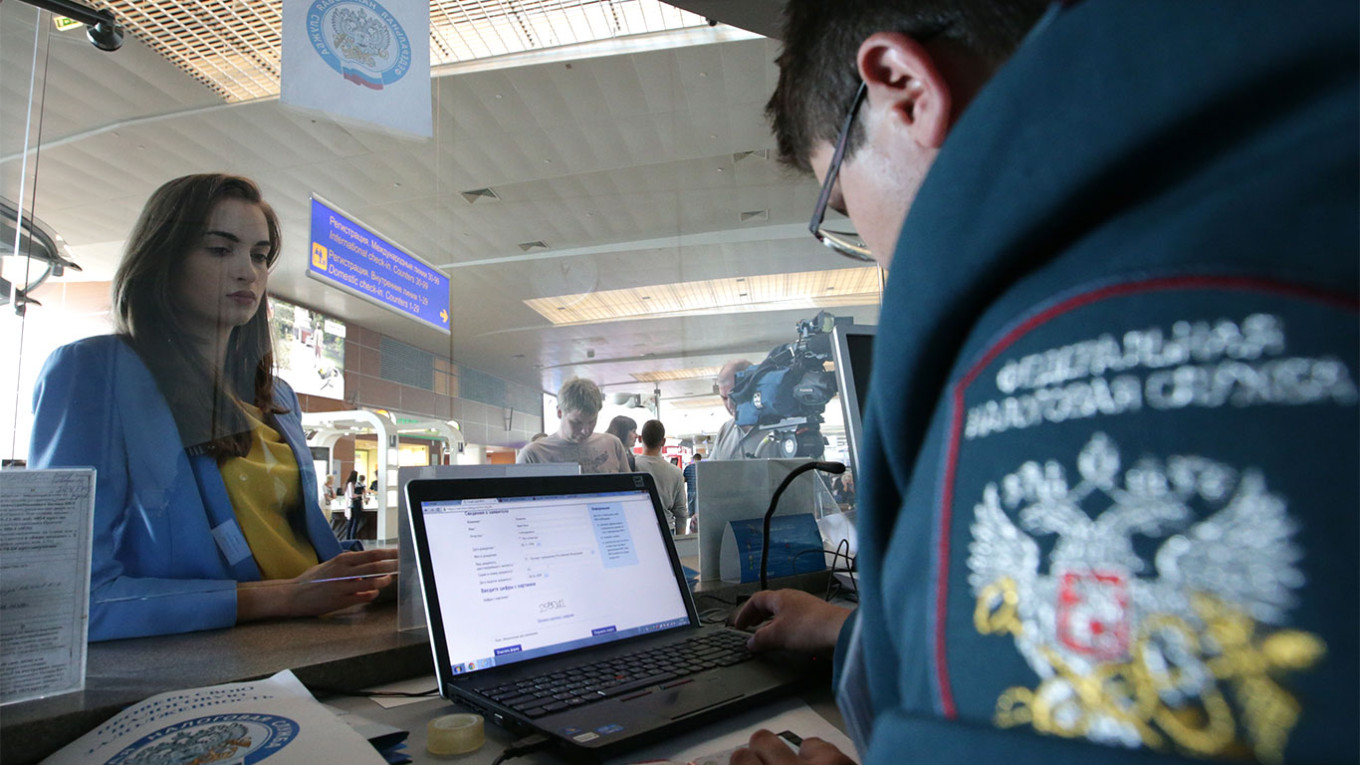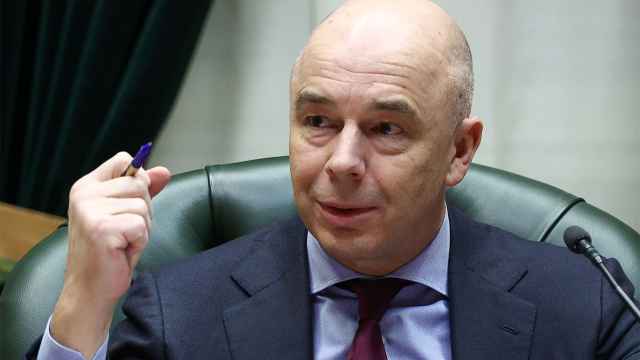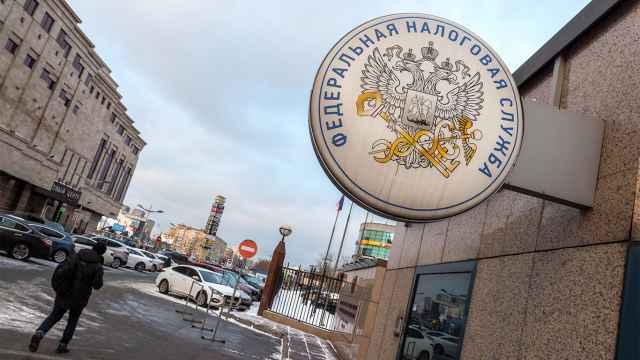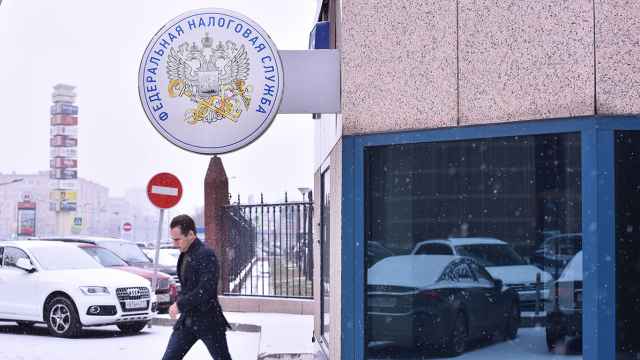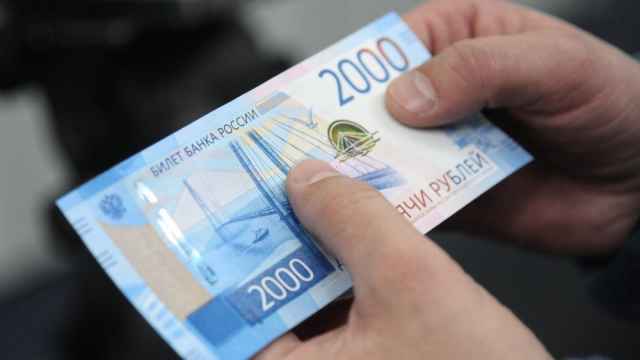Russia’s Finance Ministry submitted a major tax reform plan this week that seeks to introduce a progressive tax system and increase corporations’ contributions to the state budget.
The reform, if passed, promises to generate nearly 3 trillion rubles ($33.2 billion) per year at a time when government spending on the war in Ukraine continues to soar.
Amid initial media reports earlier this year that tax reform may be on the horizon, President Vladimir Putin said Russia’s tax system needed an overhaul to make it more “fair,” adding that “corporations, legal entities and individuals who earn more should contribute more.”
What are the proposed changes?
Russia’s income tax rate currently stands at 13% for people earning less than 5 million rubles per year ($55,850) and 15% for those earning more — a levy on higher earners introduced in 2021.
Under the Finance Ministry’s progressive tax plan, the following annual income brackets would be introduced:
- 2.4 million to 5 million rubles — taxed at 15%
- 5 million to 20 million rubles — taxed at 18%
- 20 million to 50 million rubles — taxed at 20%
- 50 million rubles or higher — taxed at 22%
Russians earning less than 200,000 rubles ($2,200) per month — or 2.4 million ($26,500) annually — would not see any tax hike with the proposed changes. Likewise, the increases would not apply to men fighting in Ukraine, some of whom have seen their salaries balloon over the past two years.
The average monthly income in Russia for 2024 was 74,854 rubles ($830), according to the state statistics agency Rosstat. In other words, Russians earned on average almost 900,000 rubles ($9,960) last year, less than twice the minimum threshold for the lowest bracket in the progressive scheme.
According to Finance Ministry estimates, around 2 million people — or 3.2% of Russia’s working population — would see their taxes go up with the progressive plan. For earnings derived from assets like savings, stock shares or other investments, the current rates of 13% or 15% — depending on the amount of earnings — would not change.
That means Russia’s super wealthy, who make their money largely on investments, capital gains and other forms of passive income such as dividends and real estate, are unlikely to feel much of a direct impact. For this reason, some analysts are calling the progressive tax scheme a tax on wages rather than income.
“The earnings of individuals will be taxed progressively from wages, but not from dividends, interest, and so on — earnings that account for significantly more in the incomes of wealthy citizens,” said Alexander Isakov, Bloomberg’s chief economist for Russia.
Meanwhile, the corporate tax rate would rise from 20% to 25%. The Finance Ministry says tax revenues from this increase — estimated at 1.6 trillion rubles ($17.7 billion) annually — would go toward state programs that support business, technology and infrastructure projects.
Analysts at Tinkoff Bank say they expect the corporate tax increase to exert some pressure on the stock market by reducing future dividends and capitalization across various sectors. However, the effect on bond markets is “potentially positive,” they say, as the tax hike would help manage the state budget deficit without significantly increasing inflation, thereby reducing long-term interest rate risks for companies.
Why raise taxes now?
Overall, the Finance Ministry estimates that its tax reform plan would generate around 2.6 trillion rubles ($29 billion) for the state budget in 2025 — when the changes are expected to take effect.
“The changes are aimed at building a fair and balanced tax system,” Finance Minister Anton Siluanov said, adding that the additional funds would bolster Russia’s “economic well-being.” He said the tax hikes will help fund social spending, including state child support and Russia’s pension fund.
The proposals move Russia further away from the flat income tax rate that was a cornerstone of Putin’s domestic economic policy during his first two decades in power. But the 13% flat rate, introduced in 2001 to combat widespread tax avoidance, was unlikely to remain in place indefinitely, and discussions about changing it have been ongoing for over a decade.
“What really supercharged it was, frankly, financing the war,” Nick Trickett, a senior analyst at S&P Global Commodity Insights, said of the government’s tax reform plan, noting the growing pressure on the state budget due to Western sanctions and the war.
Government spending has outpaced revenue by hundreds of billions of rubles, pushing the country into annual rare budget deficits. In 2022 and 2023, Russia ran a combined budget deficit of around 6.5 trillion rubles ($71.9 billion). This year, the government has budgeted for a shortfall of 1.6 trillion rubles ($17.7 billion), equivalent to around 0.9% of GDP.
Moreover, the loss of lucrative energy sales to Europe, combined with the substantial increase in military spending, has forced Russia to dip into its sovereign wealth fund and borrow from state-owned banks to cover the shortfall over the past two years. The Kremlin can no longer lean on oil and gas revenues to the extent that it previously did.
Surging wages, which rose by 7.3% in 2023 — the largest increase in more than five years — is another issue, said analyst Trickett.
“The degree of labor shortages that became apparent from 2022 onwards because of mobilization and so on has supercharged wage growth,” he told The Moscow Times. “People's wages going up means there’s more flexibility to tax them more without there being a lot of blowback.”
Wages were essentially stagnant in the decade before the full-scale invasion but surged in 2022 due to swelling military spending and labor shortages.
Raising taxes is also a way to address an overheating economy. With much more money flowing into the economy, prices have also been driven up. Inflation remains stubbornly high in Russia, with prices for April increasing by 7.8% year-on-year, up from 7.7% in the previous month.
How are businesses reacting?
Lawmakers in the lower-house State Duma have indicated that they are determined to pass the tax reforms by the end of the current parliamentary session, which was extended earlier this week to Aug. 5. This extension, some speculate, may indicate that the government anticipates a drawn-out discussion over the reforms.
Business groups are urging lawmakers to hold measured talks about the changes rather than rush the bill through parliament.
“It’s important that all changes take effect from Jan. 1 next year. So that businesses have the opportunity not only to participate in the discussion of amendments to the proposed bill but also to calmly adjust their business plans and take this into account in their planning for the next few years,” said Alexander Kalinin, head of the business association Opora.
While industry groups will have their chance to weigh in on the discussion in the weeks ahead, analysts say the clear political consensus around the need to bring in more revenues means that the proposed tax increases are guaranteed to pass.
“The political space for business to push back is basically nil,” analyst Trickett said. “Everyone knows if the deficit gets too big, it’s going to be really inflationary,” he added, noting the practicality of the move given the Russian government’s prioritization of military spending, which is expected to reach around 40% of all government spending this year.
“If you want to try to beat the West in Ukraine, and part of your competitive advantage is the fact that your industry can turn out shells at one-fifth the cost the West can, then you don’t want that gap to close over time,” he said.
AFP contributed reporting.
A Message from The Moscow Times:
Dear readers,
We are facing unprecedented challenges. Russia's Prosecutor General's Office has designated The Moscow Times as an "undesirable" organization, criminalizing our work and putting our staff at risk of prosecution. This follows our earlier unjust labeling as a "foreign agent."
These actions are direct attempts to silence independent journalism in Russia. The authorities claim our work "discredits the decisions of the Russian leadership." We see things differently: we strive to provide accurate, unbiased reporting on Russia.
We, the journalists of The Moscow Times, refuse to be silenced. But to continue our work, we need your help.
Your support, no matter how small, makes a world of difference. If you can, please support us monthly starting from just $2. It's quick to set up, and every contribution makes a significant impact.
By supporting The Moscow Times, you're defending open, independent journalism in the face of repression. Thank you for standing with us.
Remind me later.



